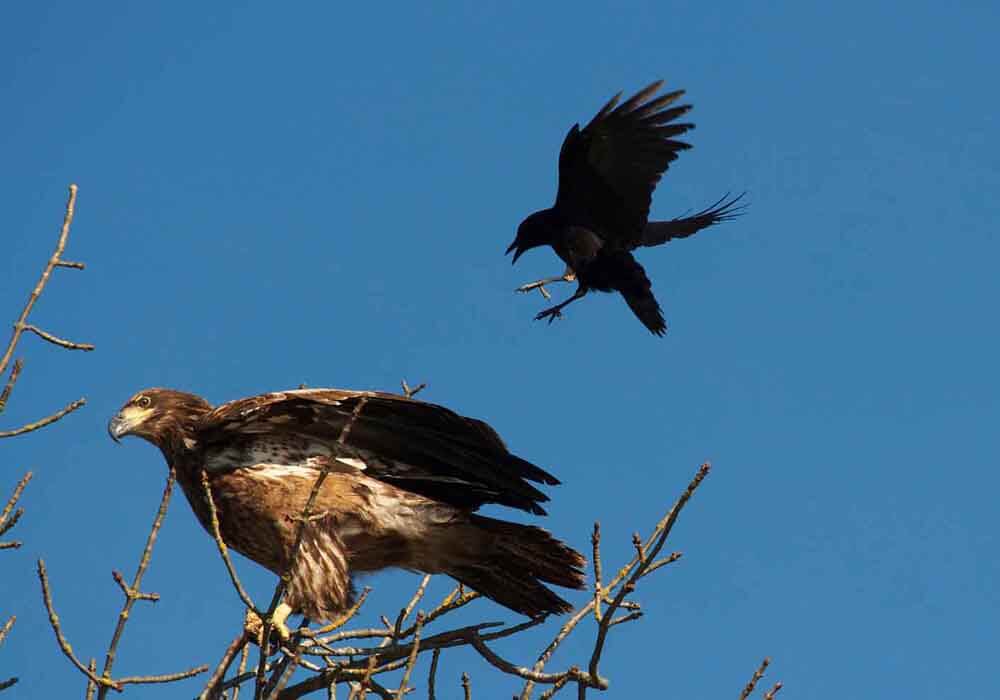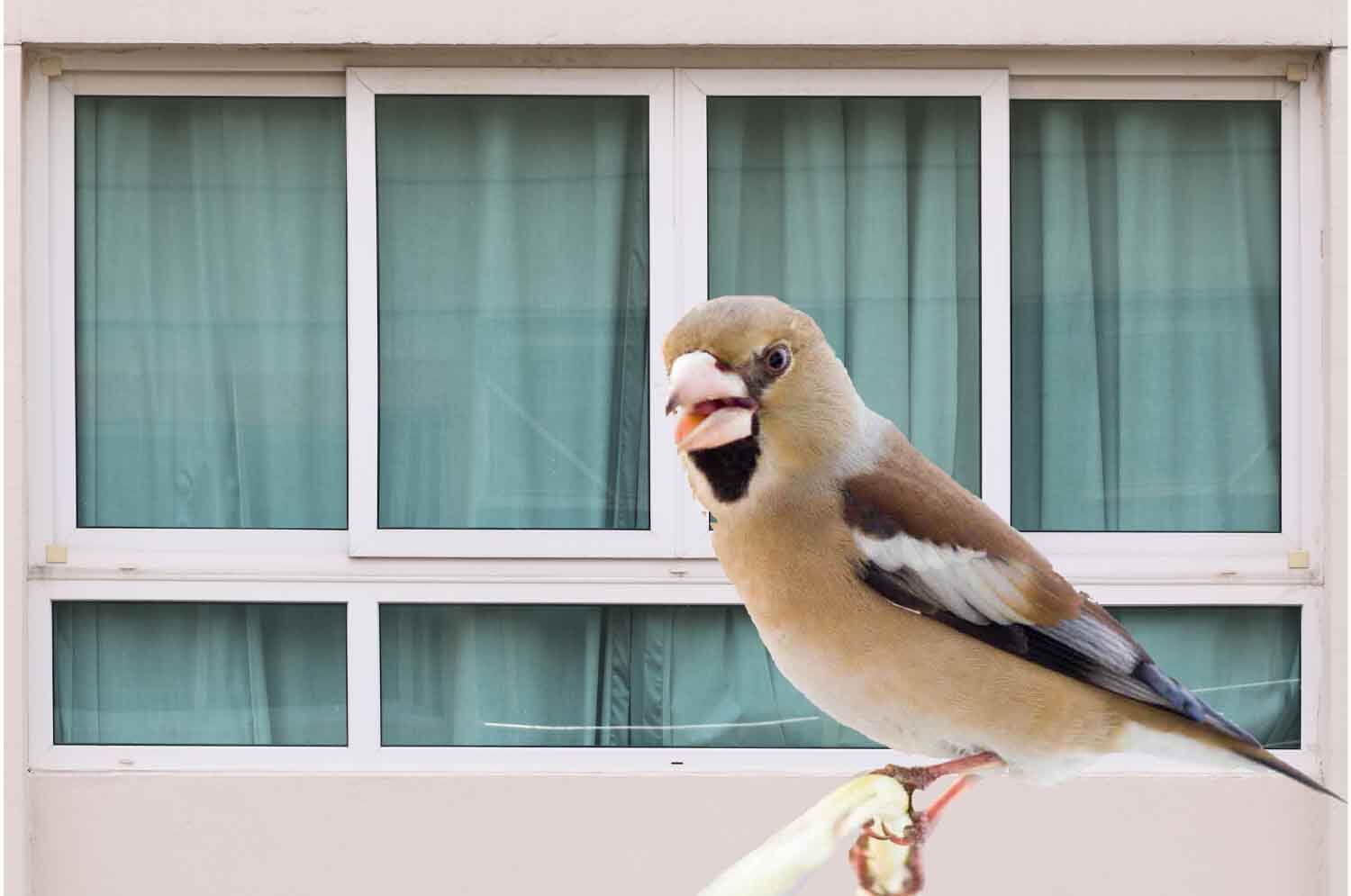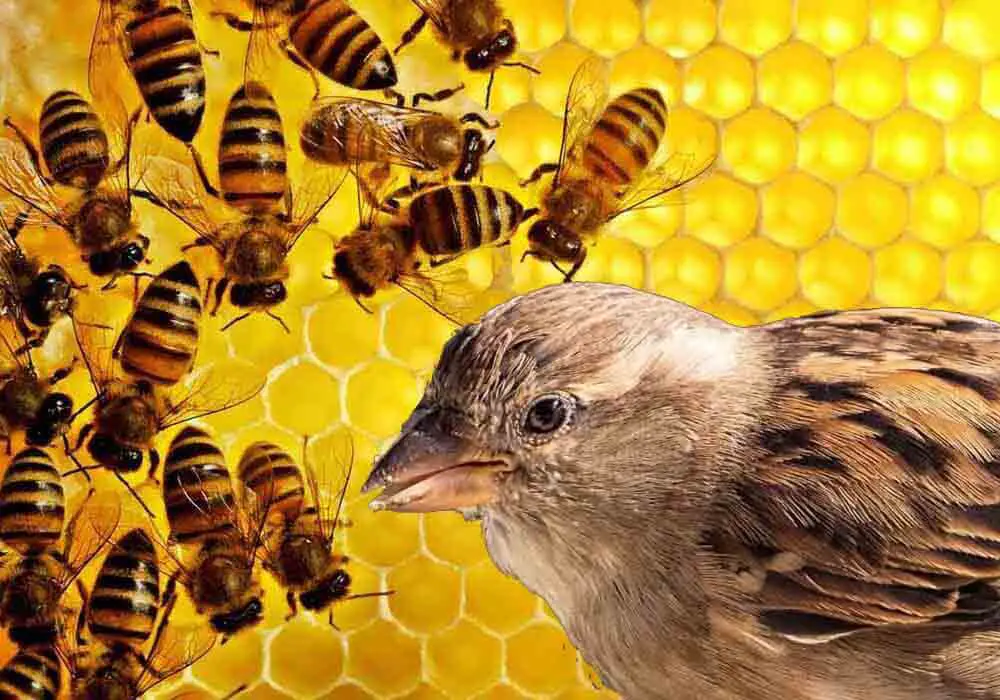Do Birds Kill Other Birds?
What Might Cause Them To Attack?
In the human world, killing other humans is often both a moral offense and a crime. Thus, it is a rare occurrence—but in the animal world, killing may even be necessary for certain species, including birds. So you might wonder: Do birds kill other birds?
Birds kill other birds for food and protection. Certain bird species, especially birds of prey, treat smaller birds as a food source and would regularly kill them for consumption. Other birds who don’t kill for consumption may do so to protect their young and territory.
Survival of the fittest has driven animals to kill other animals for food, and birds are no exception. Keep reading to discover the specifics behind bird predation.

Why Would Birds Kill Another Bird?
Birds killing other birds is a fact in nature. You may have witnessed such behavior, especially if you live in an area where birds of prey like owls and hawks thrive.
There are primarily two reasons why birds kill other birds: food and protection. Predatory birds, also called birds of prey, kill smaller species to meet their dietary requirements. Other birds, like crows, may kill to protect their babies and nests.
Birds Kill Other Birds for Food
Birds have varied dietary requirements. Some of them are carnivores or eat meat only. Others are omnivores and, thus, consume both meat and plant foods.
Birds that are carnivorous or omnivorous are predators that do kill other birds. They usually attack smaller, vulnerable birds for an easy kill and eat.
There’s a specific set of birds called birds of prey or raptors. They are hypercarnivorous, so around 70% or more of their dietary needs must be met by meat. Thus, they must hunt to survive, and other birds become their prey.
There are two main orders of raptors or predatory birds:
- Falconiformes: This order includes falcons (hence the name), eagles, vultures, hawks, and more—members of this group hunt during the day.
- Strigiformes: This order consists of owls. They are typically nocturnal or active during the night.
Raptors' bodies suit hunting and killing. Thus, they have sharp beaks and talons that make attacking and tearing into meat and skin effortless.
Birds Kill Other Birds To Protect Their Young and Territory
Birds are very territorial. Even a reflection of themselves will lead them to think that another bird is moving in their place and would attack to defend.
There’s even a phenomenon called mobbing. It’s when a group of relatively small birds harasses potential predators to protect their nests.
Although birds are highly territorial, they don’t typically kill to protect themselves. It is not evolutionarily advantageous for a bird to die every time there’s a face-off over territory. Instead, usually, there’s a lot of intimidation, fluffing of feathers, and making oneself look bigger than the adversary.
However, that does not mean that bloodshed is impossible. Some birds may still die from mobbing and battles over territories and nests. Thus, many birds prevent confrontation by avoiding other birds’ breeding grounds, especially those inhabited by raptors.
Do Birds Kill Other Birds’ Babies?
Predatory birds do not discriminate based on age. Thus, they would harm not only adults—but even eggs.
Birds kill other birds’ babies, whether chicks or eggs. The vulnerability of young birds makes them even more attractive to predators. Thus, birds are even more likely to kill baby birds than adults. Because of this, parents are cautious of their nests and young ones.
Most birds kill others’ babies for food. A term for this behavior is nest predation. Crows, for example, are rampant predators of other birds’ chicks and eggs, especially abandoned ones.
Predatory birds also take advantage of crying or begging baby birds to locate and attack them. Some birds of prey have developed auditory capabilities that allow them to discern the cries of baby birds, even at high frequency.
Some baby birds even kill other baby birds—which is the case for brood parasites, like cuckoos, who are born into another bird’s nest. To eliminate competition, they would kill the original babies so the bird parents would tend to them instead.
What Birds Kill Other Birds?
Not all birds do kill other birds. As I’ve mentioned, predatory birds are mainly omnivores, like crows, or carnivores, like falcons and owls.
Birds that kill other birds are mainly birds of prey, like falcons, owls, hawks, and eagles. Most of their diet requires meat; thus, they have to kill and eat other animals to meet their dietary needs. However, not all predatory birds are strictly carnivores—some are omnivores, like crows.
Here are examples of predatory birds:
- Falcon: Falcons are members of the Falconiformes; thus, they are daytime hunters. There are many types of falcons, varying in size and appearance. The largest is the peregrine falcon, which hunts wading birds, pigeons, and ducks.
- Owl: Although comics have depicted owls as nocturnal birds that just hoot-hoot through the night, these birds can be vicious. They feed on birds and mammals, like mice. Some bird-eating owls are barn, little, long-earned, pygmy, and tawny owls.
- Hawk: The term hawk has a specific and broad definition. People use the term to refer to any diurnal bird of prey; thus, it can be a general term. However, some limit the name to specific genera of birds only. Some predatory hawks are the sharp-shinned hawk, cooper’s hawk, and Eurasian sparrowhawk.
- Gull: Gulls are famous seabirds and are thus more known as seagulls. Although people assume they only eat fish and marine creatures, some species also eat birds. Examples of predatory gulls include the great black-backed gull and herring gull.
- Heron: Similar to gulls, there’s a mainstream portrayal of herons as long-legged birds wading through the water, looking for fish. Sometimes, they look up to the skies for their next meal instead. Some bird-eating herons include the great blue heron and cattle egret.
- Woodpecker: Woodpeckers were popular birds, which we can credit to tongue twisters and cartoon characters (Woody Woodpecker!). But besides banging their beaks on wood, they also use their beaks to kill and eat birds. The red-headed and red-bellied woodpeckers occasionally feast on baby birds.
- Jay: Jays are cousins of crows but are more flashy, colorful, and noisy. Some examples of bird-eating jays are the blue jay and gray jay. Both feed on baby birds and eggs.
- Crow: Crows may not be as big as eagles and falcons, but they’re annoying and like to bother other birds’ nests. American crows eat eggs, baby birds, and dead creatures or carrion (as in corpses). They may also kill birds when they mob their victims.
- Raven: These intelligent, black birds that have their own house in Harry Potter are also bird killers and eaters. The American raven enjoys a wide range of bird cuisine—from carrion to baby herons to adult pigeons.
Do Birds Kill Other Birds...Final Thoughts
Because of the need to survive, it is no surprise that animals kill close relatives in nature. Thus, it isn’t rare for some species to kill other birds for food or to protect their babies.
There are many types of birds of prey, including eagles, owls, and herons. These avian predators will even eat young ones or eggs, especially since they cannot defend themselves. Thus, when asking the question: Do birds kill other birds? They most certainly do!
Back To The TOP Of This Do Birds Kill Other Birds Page

About the Author...
Richard Worden, a dedicated bird lover for over 20 years, I love to share my in-depth knowledge and passion for birds. Read more About Me and my expertise in this field.
- We Know Birds HOME ›
- Bird Behavior Facts and Information ›
- Do Birds Kill Other Birds?



